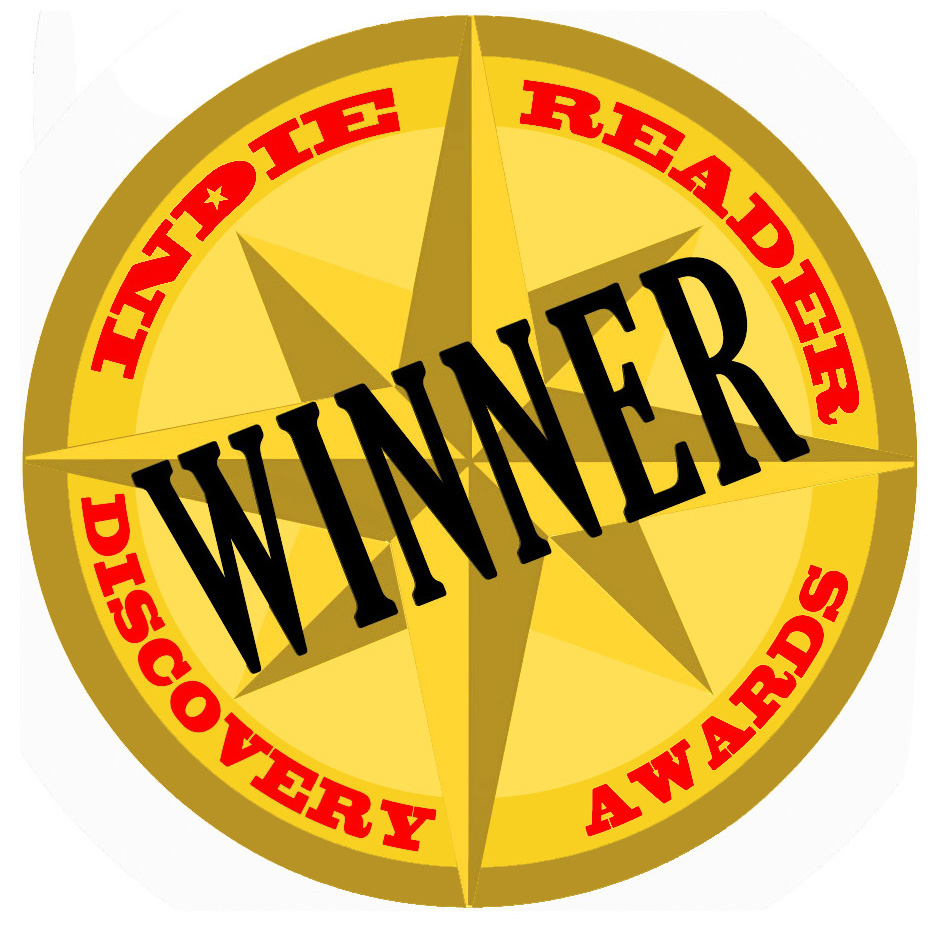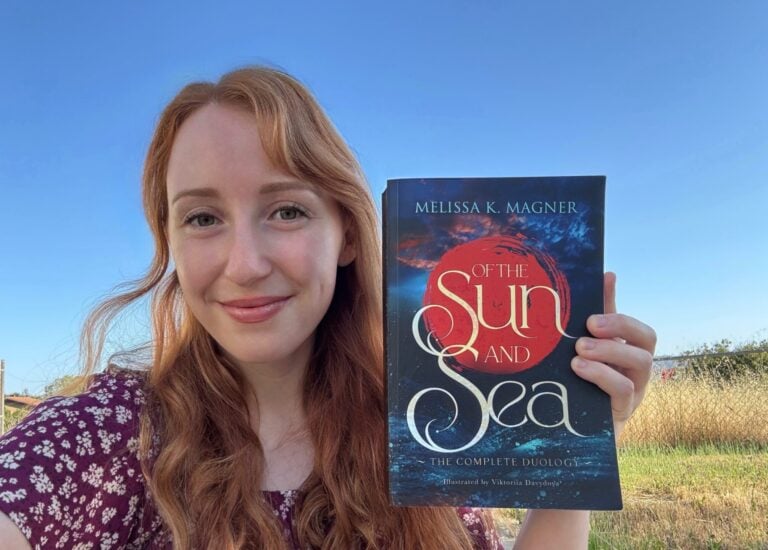
Of the Sun and Sea was the winner in the New Adult category of the 2025 IndieReader Discovery Awards, where undiscovered talent meets people with the power to make a difference.
Following find an interview with author Melissa K. Magner.
I’m incredibly honored that OF THE SUN AND SEA has been selected as the winner of the IndieReader Discovery Awards in the New Adult category. This story has been a huge part of my life for the past several years, and I’m so happy that Marina’s story has resonated with readers as deeply as it resonates with me. Thank you to IndieReader for the opportunity, for providing indie authors with a place to shine, and for championing bold—and perhaps unconventional—stories.
What is the name of the book and when was it published?
Of the Sun and Sea. It was published in April 2025.
What’s the book’s first line?
“The waves came to Marina in her sleep.”
What’s the book about? Give us the “pitch”.
Of the Sun and Sea follows a grieving young woman who comes into possession of an otherworldly power and finds herself implicated in the plight of another realm—one which forces her to overcome darkness both around and within her.
What inspired you to write the book? A particular person? An event?
The origins of this story actually go back twenty years. When I was seven, I wrote a story called Marina Oliver and the Island, which was about a young girl swept out to sea by a tsunami and stranded on a magical island. The general idea inspired this story—albeit with much more complexity this time around. That said, themes tend to influence most of my books, and they’re typically what stirs the initial inspiration. I knew I wanted to tackle themes of change, loss, and choice/autonomy, which were major sources of inspiration for Of the Sun and Sea.
What’s the main reason someone should really read this book?
At its core, Of the Sun and Sea is a portal fantasy twist on the chosen one trope. But beyond the fantasy and adventure, it’s a story about grief, love, and reclaiming agency after loss. It explores both the darkest and most tender parts of being human. Marina, the protagonist, begins as the antithesis of a hero—broken, almost nihilistic—but regains her strength not through fate, but through choice.
What’s the most distinctive thing about the main character? Who—real or fictional—would you say the character reminds you of?
There are a lot of reasons why Marina isn’t your typical heroine, but what really sets her apart are her deep, intense, and sometimes destructive emotions. Her journey is about learning to weather these emotions and control not just her burgeoning power, but her inner world. In that way, she reminds me a lot of Elsa from Frozen. Both Marina and Elsa are emotionally volatile, burdened by guilt, and terrified of hurting others—but they’re also deeply loving, fiercely protective, and ultimately learn to stand in their power with clarity and self-acceptance. Of course, like many authors, I see parts of myself reflected in my characters too. There are fragments (okay, very large fragments) of me in Marina, though the same can be said for characters like Aeric, Ryder, Pierce, Yolie, Cal, and yes, even Kieron (the antagonist). That’s the fun of writing characters: you get to pull from so many sources of inspiration, both external and internal.
When did you first decide to become an author?
Honestly, I don’t think I ever really decided! My authorial journey has surprised me a little. I’ve loved storytelling since I was very young, probably because I was—and am—an escapist at heart. I grew up playing make-believe games, and I’d often transform those games into stories (sometimes illustrated by my sister and friends). As I got older, I wrote purely for fun. During that time, writing felt like an extension of playing make-believe. I wasn’t necessarily great at it, but I didn’t need to be. I spent countless hours lost in stories, practicing without realizing it. I even submitted my drafts to now-retired sites like Review Fuse, where tween me would get critiques from much older writers (who I learned so much from). But mostly, I learned from my grandmother, Patricia Kaspar, a writer and editor who’d always take the time to review my work. Patricia was diagnosed with ALS in 2011 and passed away in 2012. While we were cleaning out her house, I found a cabinet full of her stories. Most were sci-fi and space opera, but one was a YA mystery titled Jinx. I finally read it during college and fell in love with the story. I saw so much of her and her childhood best friend in the characters. The book was in its early phases, so I adapted it, blending mystery with dark fantasy. From there, Jinx (2018) was born. I don’t completely remember when I officially decided to publish it, but in August 2018—after many edits and a lot of research about publishing routes—it hit shelves.
At that time, publishing it felt like a one-and-done milestone—a way to honor my grandmother and get my voice out there too. But inspiration hit again later that year, and I started The Underground Moon. By the time it came out in 2020, I’d built connections with editors, other authors, and even my illustrator and narrator. My editor for The Underground Moon had a lot of in-house trade experience, and I learned a ton about the industry from her. I was pretty confident in my decision to go indie, but it was still great having a connection who’d worked with many different authors on many different paths.
By the time I started Of the Sun and Sea, I realized I was standing somewhere I hadn’t really planned for. I especially remember one moment in late 2023: I was getting beta feedback on Of the Sun and Sea, my earlier books were gaining more attention, and for the first time I remember thinking, “Wow, I actually feel like an author.”
So, I guess somewhere along the way, I became an author—not because I set out with a clear goal, but because I loved writing so much that I simply couldn’t stop doing it.
What do you do for work when you’re not writing?
I originally earned my Master’s in Psychology with the goal of becoming a therapist for either adolescents or kids, but I quickly realized I needed writing to be part of the job to avoid burnout. This led me to the college consulting field, where I now work with high school juniors and seniors on their college planning and applications. I love the job—it blends storytelling and mentorship. I get to work with an age group I really enjoy, and the role often becomes part counselor too (which is where my psychology background proves invaluable!).
How much time do you generally spend on your writing?
It varies. When I’m in the thick of a story, I’ll often write for several hours a day (usually at night, which is when I do my best work). During quieter phases, like when my book is with an editor, I write less. But I know I’m really connected to a story when I think about it constantly, regardless of whether or not I’m actively writing. Often, it’ll seep into my dreams and trivial parts of my day!
What’s the best and the hardest part of being an indie?
For me, the best part of being an indie author is the freedom and control, which I truly believe go hand-in-hand. I’ve known from the beginning of my journey that indie publishing was the right path for me, and I wouldn’t trade the ability to make every creative decision, from covers to timelines, for anything. I don’t even give myself hard deadlines because I’ve learned they hinder my writing.
The hardest part for me is probably marketing, especially since I’m not great at managing multiple accounts or staying consistently visible online. It just isn’t where I do my best work. That said, I know it comes naturally to a lot of authors, and I love that there are so many ways to connect with readers.
A few years ago, I might’ve said stigma, but I think that’s shifting. It’s become more widely accepted that publishing isn’t one-size-fits-all, and you can still build a stellar team to help bring your book from draft to publication-ready. That team just might look different than a traditional setup!
I think every publishing path has trade-offs. With indie, you give up certain structures like publisher-driven marketing or distribution, but you gain full creative agency. For me, that trade-off is worth it. What matters most is choosing the path that aligns with your personal goals as an author. There’s no “right” answer, just what works for your journey.
Would you go traditional if a publisher came calling? If so, why?
While I always like to keep the door open (you never know what the future will bring), I really don’t see myself pursuing traditional publishing. A large part of that is how I approach my books: I tend to make unconventional choices that just feel right for the stories I’m telling. For example, publishing my latest series as an omnibus from the start probably wouldn’t have aligned with most traditional models, which is totally understandable, but it made sense for the story and for me.
There’s so much to admire about traditional publishing, but for me, being indie is the best choice. I love the creative control, the ability to follow my instincts, and the freedom to carve out a niche on my own terms. It’s not about one path being better than the other, it’s about finding the one that lets you do your best work. For me, that’s indie.
Is there something in particular that motivates you (fame? fortune?)
Love of the craft. I started writing because I loved it, and I still write because I love it. Creating worlds, characters, and stories is how I process things—how I connect, how I understand. I know I’ve clicked with a story when I obsess over it, cry over it, think about it constantly. And while it sounds intense, I really love the emotional rollercoaster. Writing is, and probably always will be, one of my favorite things in the world.
